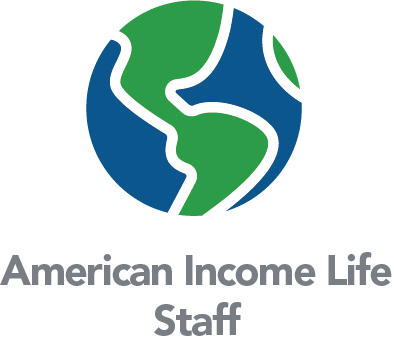A guaranteed cash value is a feature of a whole life insurance policy. It grows over the lifetime of the policy provided the premiums are paid on time.
A guaranteed cash value grows at a set rate until it is equal to the face value of the policy at a specified age, typically age 100 or 121.1
The death benefit amount of a whole life insurance policy is also called the “face value” of the policy. If the premiums are timely paid and up to date, and no money has been withdrawn in the form of a loan, the death benefit will be the same as the face value or full amount of the policy for beneficiaries.
Whole life insurance or permanent life insurance does not expire. As long as the policyholder continues to pay the premiums on time, the policy remains active. When either all the premiums have been paid, or enough cash value is accumulated, the whole life or permanent life insurance can be utilized in different ways:1
How a whole life insurance policy accumulates cash value
For a whole life insurance policy with a guaranteed cash value, the premiums may be higher than a term life insurance policy with no cash value. One portion of the premium goes toward the policy’s death benefit, while another portion is allotted to the policy’s cash value. This cash value amount can increase over the life of the policy.
A guaranteed cash value is the amount accessible during the life of the policyholder. This is a cash value built up over time as the policyholder pays premiums. Cash values normally increase at a fixed rate as opposed to variable life insurance policies. Variable life insurance can place funds in mutual funds invested or other investment products classified as subaccounts. Cash values from a variable life insurance may grow or fall based on the subaccount’s performance.2
The cash value component of a whole life insurance policy is a feature the policyholder can access while living.
Be sure to read the conditions of the policy. Not all cash value features of whole life insurance policies are guaranteed.
Variations on whole life insurance cash value
Whole life insurance policies are structured to build cash value and allow for borrowing against the accrued cash value. Life insurance is regulated by state insurance commissioners. State law mandates whole life policies “…contain nonforfeiture values payable in cash or some other form of insurance in the event the policy lapses from nonpayment of required premiums or the policy owner decides to surrender the coverage.”3
Listed are types of whole life insurance policies:
- A non-participating policy4 does not share in surplus earnings and no dividends are paid. Whole life insurance is a non-participating policy. It does include a premium that remains the same, a set death benefit amount, and cash values increasing at a fixed rate.
- A participating life insurance policy is one for which the policyholder can receive dividends as an added feature of owning the policy. This option creates more flexibility and may be more expensive than a non-participating policy.
- Indeterminate premium whole life insurance premiums are set annually. The premium reflects the insurer’s mortality data, investment earnings, and expenses. Premiums of this type of insurance generally begin with lower rates than other whole life insurance policies.
- Ordinary level premium whole life insurance is a policy where the premium remains consistent over the life of the policy until the death of the insured or when the cash value equals the face value amount of the policy.
- Limited payment whole life insurance policies mean higher premiums with cash value accruing sooner than ordinary life insurance policies.
- Single premium whole life insurance is a limited payment. It is a single upfront lump sum payment with guaranteed lifetime protection. This limited payment can also be used as an immediate cash value.5
Using your cash value while alive
The cash value can be used for cash withdrawals. This may be in the form of a policy loan. If the loan is not paid back with interest into your account, this affects the amount the death benefit will pay out to the beneficiaries.
Questions to ask when buying a life insurance policy
Depending on a person’s financial goals and the needs of the beneficiaries, consider these questions:
- What is the necessary amount of life insurance to cover your family’s financial needs if you were no longer alive?
- Do the premiums vary from year to year?
- What is the effect of interest on money paid and received at various times on a policy?
- How quickly does the cash value grow?
- Are there specific features a life insurance policy must have for your particular needs?6
Consulting with a licensed life life insurance agent is a good place to start in understanding how cash values work as part of a whole life insurance policy.
Sources:
- Investopedia, https://www.investopedia.com/articles/personal-finance/082114/how-cash-value-builds-life-insurance-policy.asp, July 28, 2023.
- Forbes Advisor, https://www.forbes.com/advisor/life-insurance/cash-value-life-insurance/, October 16, 2023.
- NAIC, https://content.naic.org/cipr-topics/life-insurance, June 6, 2023.
- Cleartax, https://cleartax.in/glossary/non-participating-policy/, Published August 16, 2023.
- NAIC, https://content.naic.org/cipr-topics/life-insurance, June 6, 2023.
- NIAC Life Insurance Buyers Guide, https://www.insureuonline.org/consumer_guide_life.pdf, 2007 NAIC.
Categories: Life Insurance, Whole Life Insurance


